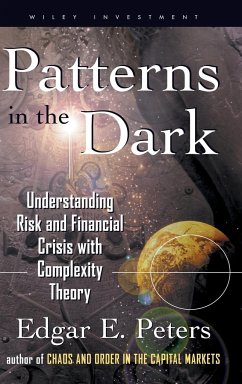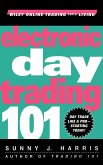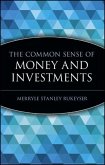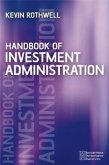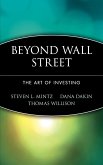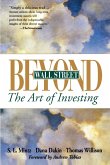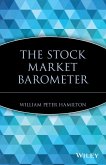A groundbreaking look at complexity theory and its implications in the world of finance
Complexity theory tells us that processes with a large number of seemingly independent agents-such as free markets-can spontaneously organize themselves into a coherent system. In this fascinating book, Edgar Peters brings together scientific theory, the artistic process, and economics to show how the randomness and uncertainty of complexity theory can be applied to financial markets. Written in an engaging and accessible style, this is a thoughtful, conceptual look at the way free markets are, by their nature, continually evolving complex systems. Expanding on previous explorations of chaos theory, Peters draws on real-life examples ranging from the Asian crisis to America s love of conspiracy to show that complexity and randomness are necessary for the free markets to operate in a competitive manner.
Hinweis: Dieser Artikel kann nur an eine deutsche Lieferadresse ausgeliefert werden.
Complexity theory tells us that processes with a large number of seemingly independent agents-such as free markets-can spontaneously organize themselves into a coherent system. In this fascinating book, Edgar Peters brings together scientific theory, the artistic process, and economics to show how the randomness and uncertainty of complexity theory can be applied to financial markets. Written in an engaging and accessible style, this is a thoughtful, conceptual look at the way free markets are, by their nature, continually evolving complex systems. Expanding on previous explorations of chaos theory, Peters draws on real-life examples ranging from the Asian crisis to America s love of conspiracy to show that complexity and randomness are necessary for the free markets to operate in a competitive manner.
Hinweis: Dieser Artikel kann nur an eine deutsche Lieferadresse ausgeliefert werden.
"Edgar E. Peters's latest book, Patterns in the Dark: Understanding Risk and Financial Crisis with Complexity Theory is not merely an autobiographical indulgence. The bulk of the book is Peters's lucent analysis expounding on the need for uncertainty. Whether he uses the example of genetic algorithms to show how randomness can lead a process to a goal even when the ultimate path is unknown, or if he simply shows how David Bowie's creation of Ziggie Stardust illustrates the integration of two seemingly contrary elements in the creative process (with a nod toward uncertainty as a requirement for stability), Peters's always seems to provide compelling insight into how global structure and local randomness interact.
Ultimately, the book's implications for "global structure" policymakers are more clear than any prescriptions that might be handed down to individual investors acting in an environment of local randomness. However, the discussions regarding various process models and their implications for economic activity are worth the price of admission alone. Interested investors ought to check it out."--("Fool On The Hill - An Investment Opinion" by Alex Schay - June 1999)
Ultimately, the book's implications for "global structure" policymakers are more clear than any prescriptions that might be handed down to individual investors acting in an environment of local randomness. However, the discussions regarding various process models and their implications for economic activity are worth the price of admission alone. Interested investors ought to check it out."--("Fool On The Hill - An Investment Opinion" by Alex Schay - June 1999)
Peters combines a chaos/complex systems framework with the Austrian school of economic thought to explain our lack of market understanding. He develops a strong case that the most pressing problem for investors is not a matter of specific models but of determining how to assess risk in a complex and uncertain world. Peters draws important distinctions between risk, uncertainty, ignorance, vagueness, and ambiguity, and in doing so, shows how the subtle meanings of words can provide immense value in explaining the market environment. He also resurrects the Austrian school s emphasis on subjectivism and makes it come alive within finance. (Financial Analyst s Journal)

